Vultures might not be the first creatures that come to mind when you think of fascinating wildlife, but these often misunderstood birds have a lot more going on than meets the eye. Their unique adaptations and behaviors have allowed them to thrive in some of the most challenging environments on the planet. But be warned: some of these facts might make your stomach turn.
1. Vultures Have an Acidic Weapon
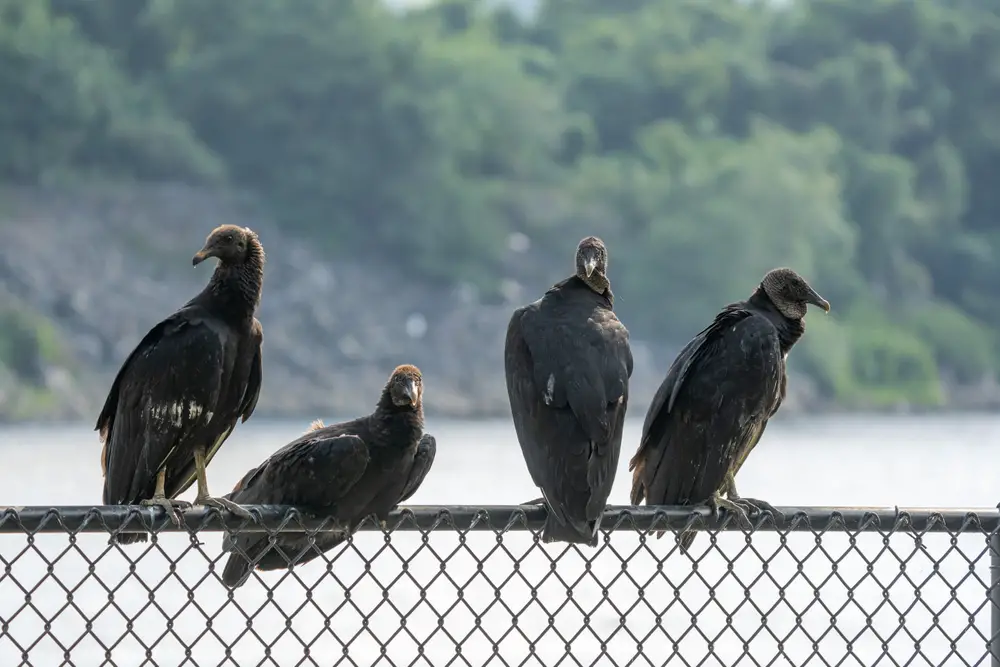
Did you know that vultures have stomachs that are more acidic than battery acid? This enables them to eat rotting carcasses that would be deadly for most other animals. Their highly acidic digestive system neutralizes dangerous bacteria like anthrax and botulism, essentially detoxifying their meals. According to the Smithsonian’s National Zoo, this acidic advantage not only benefits the vultures but also helps prevent the spread of disease by cleaning up dead animal remains in the ecosystem.
While this superpower is incredibly efficient for cleaning up the environment, it’s not the most pleasant thought knowing that these birds can digest some of the most toxic substances on earth. Imagine being able to eat a rotten steak that’s been sitting out for days without getting sick! This unique adaptation is one of the reasons vultures are often referred to as nature’s garbage disposal. So next time you see a vulture picking at roadkill, remember they’re doing essential work that might just save us from a potential outbreak.
2. They Use Vomit as a Defense Mechanism
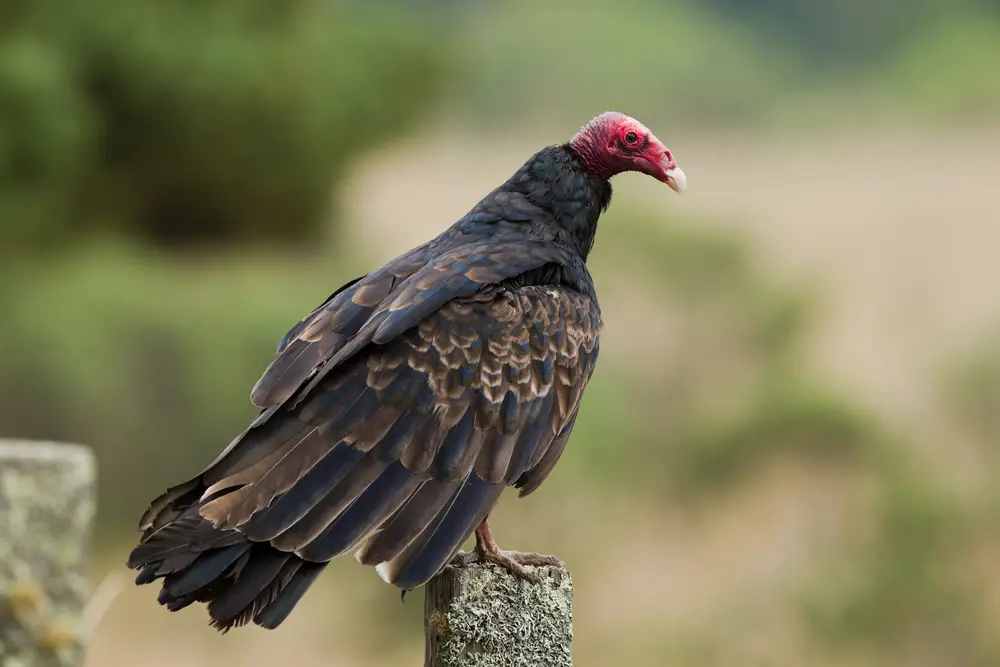
Vultures have developed a rather unorthodox method of defending themselves from predators: they projectile vomit. While this might sound disgusting, it’s actually a highly effective strategy. The vomit not only smells terrible but can also be a weapon due to the high acidity that can burn the eyes and skin of predators. When confronted with danger, a vulture will regurgitate its stomach contents to lighten its body weight, which allows for a quick escape.
This might seem like a bizarre and revolting way to get out of a jam, but in the wild, survival is all about using every tool at your disposal. The next time you think you’re having a bad day, just be glad you don’t have to puke on someone to defend yourself. It’s astonishing how evolution has equipped these birds with such a drastic defense mechanism, reminding us that nature is full of surprises—some messier than others.
3. Vultures Practice Urohidrosis: Peeing on Their Legs
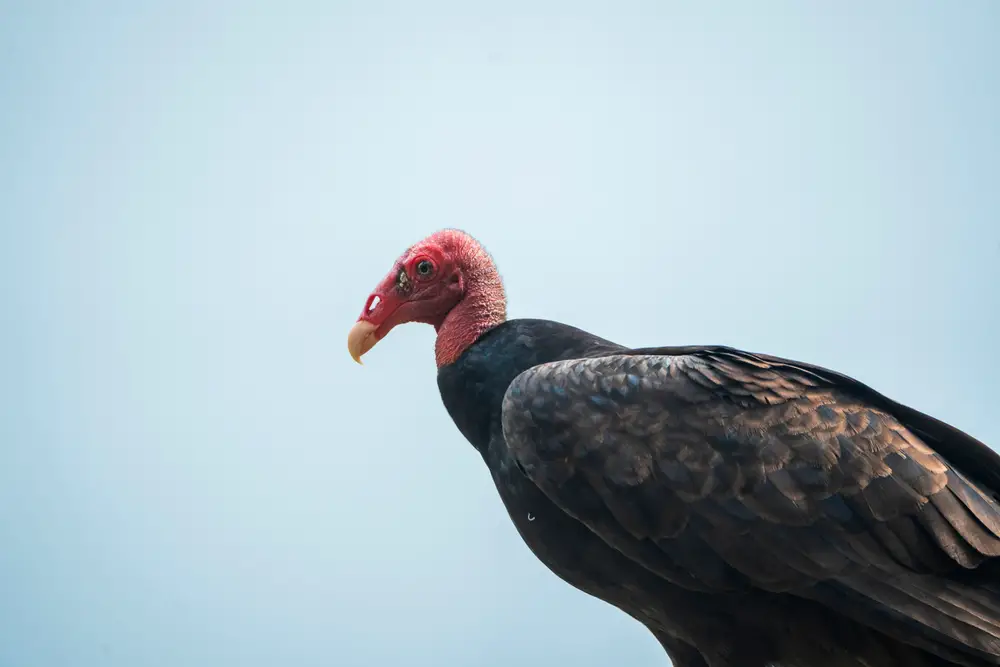
Here’s a fact that might make you wrinkle your nose: vultures are known to urinate on their legs, a behavior called urohidrosis. This may sound like a hygiene disaster, but there’s actually a method to the madness. By urinating on their legs, vultures can cool themselves down through the evaporation of the liquid. Additionally, according to the Cornell Lab of Ornithology, the uric acid in their urine helps kill bacteria accumulated on their feet, which, as you might guess, is a frequent occurrence when you’re walking around in carrion all day.
While this might not be the most glamorous method of staying cool or clean, it’s a clever solution to keep bacteria at bay and regulate body temperature. Unlike humans who rely on sweat glands, vultures have had to improvise, which may not be pretty, but it’s effective. It’s a reminder that when it comes to survival, nature’s solutions can be both practical and peculiar. So the next time you’re complaining about the heat, think of the vulture’s clever yet cringe-worthy cooling technique.
Vultures might not be the most beloved creatures in the animal kingdom, but they play an essential role in maintaining the health of our ecosystems. Often misunderstood and underappreciated, these fascinating birds have some truly shocking secrets. Brace yourself as we delve into some gut-wrenching facts about vultures that you may never forget.
4. Vultures Are Facing a Silent Crisis
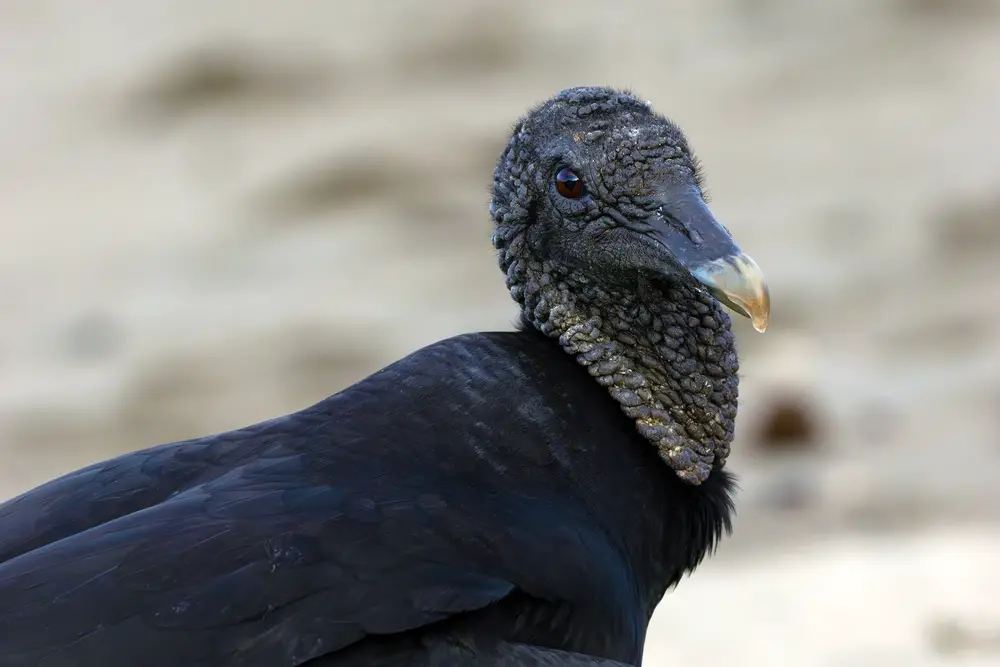
While vultures play a crucial role in the ecosystem, their populations are declining at an alarming rate. This is mainly due to poisoning, habitat loss, and hunting. In some regions, vultures are poisoned unintentionally through the consumption of carcasses tainted with pesticides or veterinary drugs like diclofenac. This drug, used for livestock, causes kidney failure in vultures, leading to a significant decrease in their numbers.
The decline of vultures has serious repercussions. Without them, dead animal carcasses are left to rot, which can lead to the spread of diseases such as anthrax and rabies. This impacts not only wildlife but also human populations living nearby. Conservation efforts are underway, but without significant changes, these vital birds may continue to dwindle, affecting entire ecosystems.
5. Their Vision Is Exceptionally Sharp

Vultures possess some of the sharpest vision in the animal kingdom, which they rely on to spot carrion from great distances. They can detect a three-foot carcass from four miles away, thanks to their keen eyesight. This ability allows them to scan vast expanses of land while soaring high in the sky, conserving energy as they search for their next meal.
Interestingly, vultures also have a strong sense of smell, particularly the Turkey Vulture, which is quite unique among bird species. This adaptation allows them to locate carcasses hidden beneath the forest canopy. Their combination of visual and olfactory acuity ensures they can efficiently find food in a variety of landscapes. This impressive sensory toolkit is just another example of how these birds have evolved to thrive in their niche.
6. They Play a Role in Cultural Symbolism
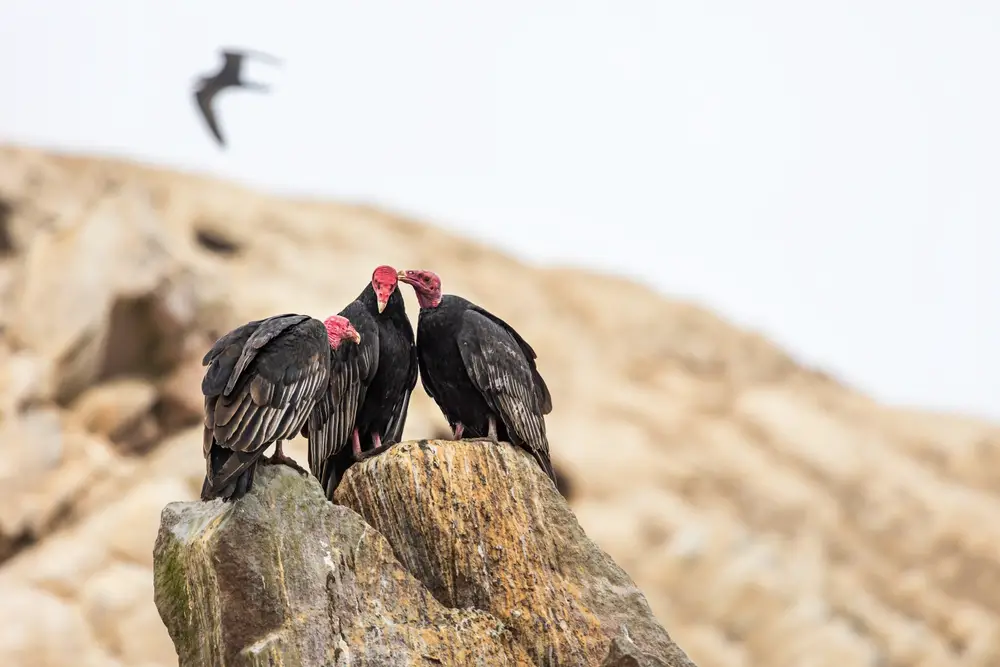
Vultures hold significant cultural and symbolic meanings across various societies. In Ancient Egypt, they were associated with protection and maternal care, often depicted in art and mythology. The vulture goddess Nekhbet was considered a guardian of the nation and the pharaohs. This positive symbolism contrasts sharply with the often negative perception of vultures in modern times.
In some Native American cultures, vultures are seen as a symbol of cleansing and renewal, given their role in disposing of the dead. Despite the somewhat grim nature of their work, these birds are respected for their contribution to the circle of life. This cultural perspective highlights the diverse ways humans have understood and appreciated vultures throughout history. Embracing these symbolic interpretations might help foster a greater appreciation for these misunderstood creatures.
7. They Have Social Structures and Communication
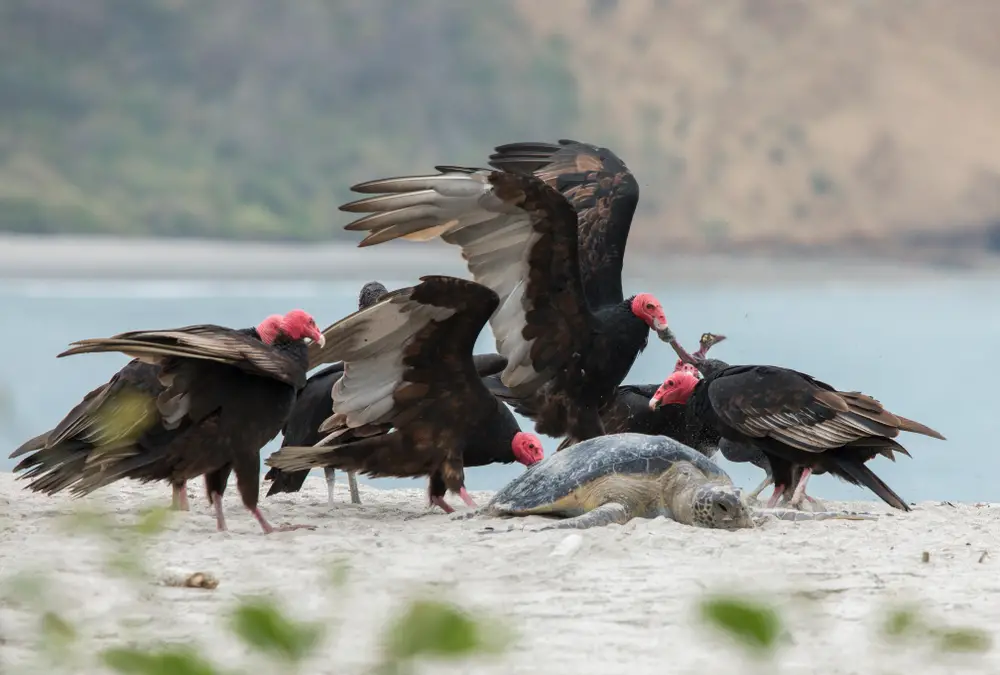
Vultures are not as solitary as they might seem. Many species exhibit social behaviors, often gathering in large groups called wakes when feeding. This social structure allows them to efficiently share information about food sources. By observing each other, they can quickly locate carcasses, which is crucial for survival in times of scarcity.
Communication among vultures is mostly non-verbal, relying on body language and positioning to assert dominance or submission. These interactions help maintain order during feeding, preventing aggressive confrontations. Understanding these social dynamics provides insight into the complex lives of vultures beyond their role as scavengers. It challenges the stereotype of vultures as solitary creatures by revealing the community-oriented aspects of their behavior.
8. They Have Surprisingly Long Lifespans
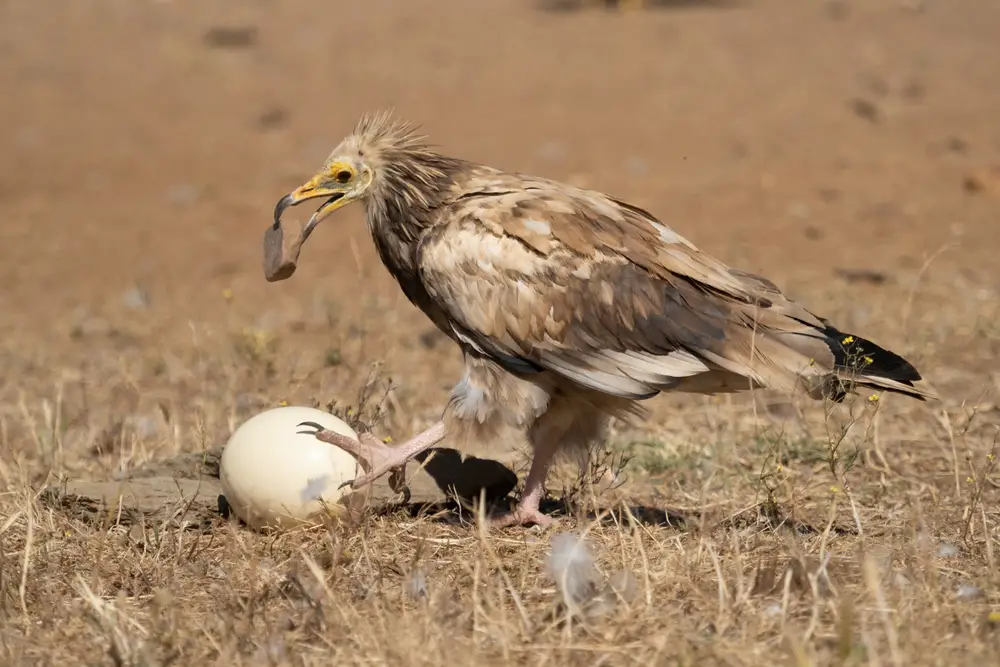
Despite their rough diets and harsh living conditions, vultures are known for their longevity. Some species can live up to 30 years in the wild and even longer in captivity. Their long lifespans can be attributed to their strong immune systems, which protect them from diseases that would be lethal to most other animals. By consuming rotting carcasses filled with bacteria and toxins, vultures have developed biological defenses that make them incredibly resilient creatures.
Interestingly, their slow reproduction rates balance out their extended lifespans. Most vulture species only lay one egg per breeding season, investing significant time and energy into raising their young. This means that any decline in their population due to habitat destruction or poisoning has long-term consequences. Their ability to live for decades, combined with their crucial ecological role, makes their conservation even more vital.
9. They Can Fly for Hours Without Flapping Their Wings
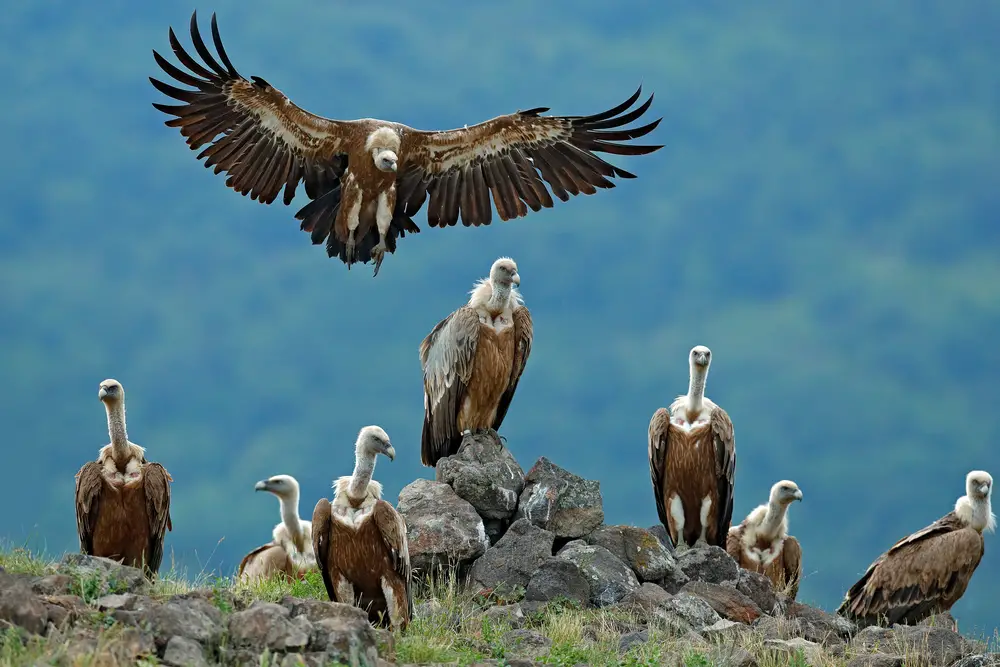
Vultures are masters of effortless flight, using thermal updrafts to soar for hours while barely expending any energy. By riding rising columns of warm air, they can travel vast distances without flapping their wings, making them some of the most energy-efficient birds in the sky. This skill allows them to cover hundreds of miles in a single day in search of food, giving them an advantage over other scavengers.
This ability isn’t just a survival tool—it also helps vultures play a key role in their ecosystems by ensuring that carrion is located and disposed of quickly. Their near-constant presence in the sky makes them a critical part of nature’s cleanup crew. Watching vultures glide effortlessly across the sky is a reminder of how beautifully adapted they are to their niche. Their soaring flight is one of the many fascinating qualities that make them both mysterious and awe-inspiring.
10. Some Vulture Species Are on the Brink of Extinction
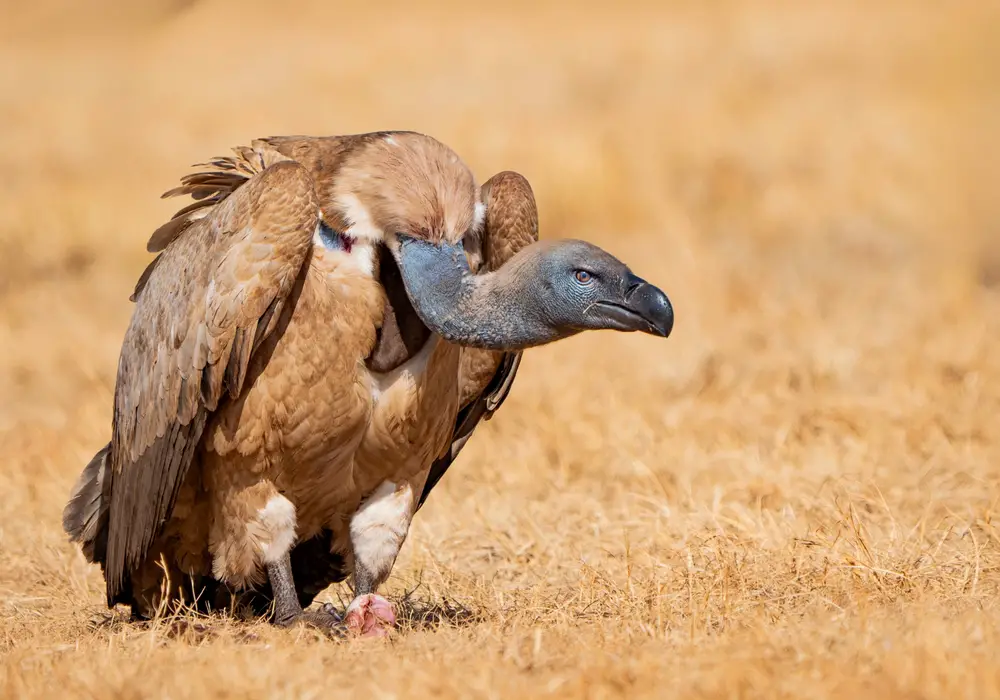
While vultures are often overlooked in conservation efforts, many species are facing critical population declines. Several African and Asian vulture species have seen their numbers drop by over 90% due to poisoning, habitat loss, and human conflict. One of the biggest threats is secondary poisoning, where vultures consume carcasses tainted with pesticides or poached animal remains laced with poison meant to kill predators. This has led to devastating losses, pushing some vulture species to the brink of extinction.
Conservationists are fighting to save these vital birds by implementing bans on harmful chemicals, establishing breeding programs, and raising awareness about their importance. Without intervention, the loss of vultures could lead to an increase in disease outbreaks and disrupted ecosystems. Protecting vultures isn’t just about saving a single species—it’s about maintaining the balance of nature itself. Recognizing their value is the first step in ensuring they continue to thrive for future generations.
